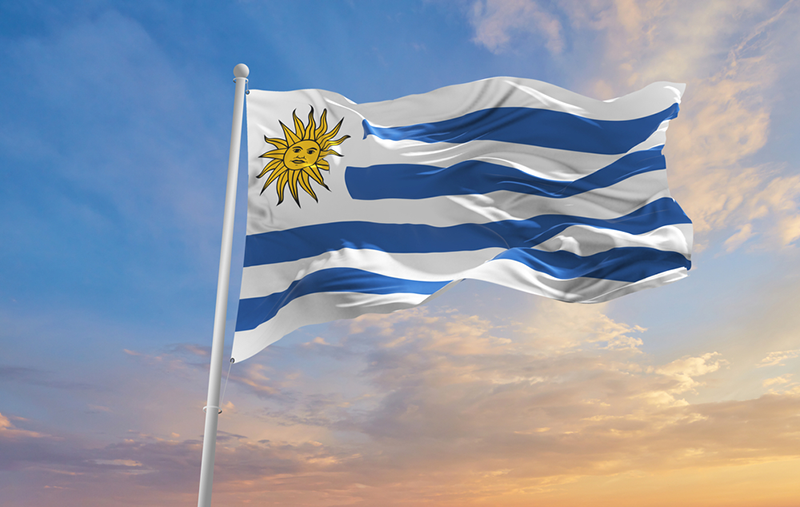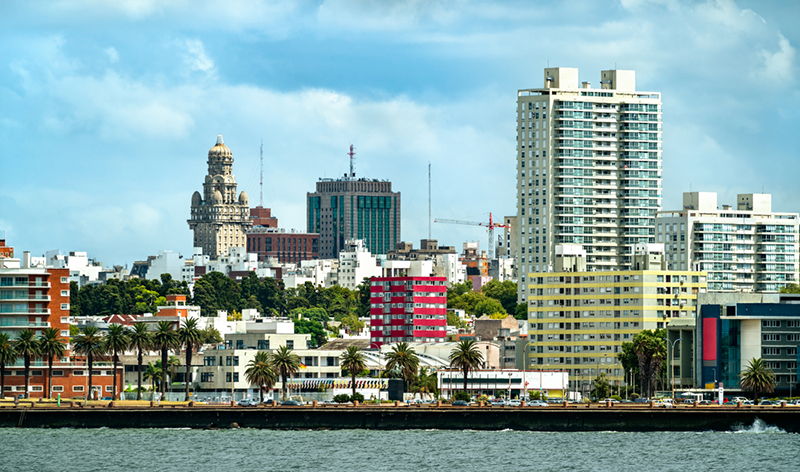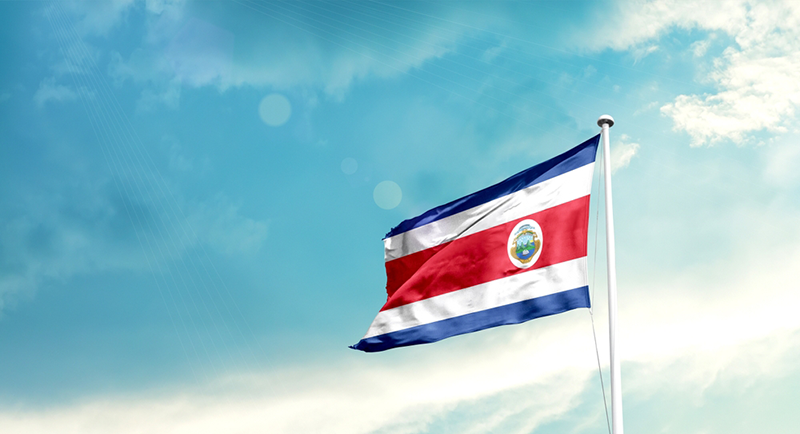Doing Business in the UK
The UK remains one of the most influential economies in the world, offering strong institutional stability, deep capital markets, and a strategic...

Doing business in Uruguay represents a strategic opportunity for companies and entrepreneurs seeking to expand in Latin America and connect with the world. Montevideo, as the capital and economic center, concentrates a large part of the business activity and offers a favorable ecosystem for entrepreneurship, with modern infrastructure and quality services.
For Argentine investors, Uruguay presents itself as a nearby, stable market with clear regulations, ideal for diversifying operations and meeting the needs of demanding consumers. Opportunities range from product marketing to investment in real estate or food, especially in premium areas like Punta del Este, where the quality of life and international demand are driving a growing trend.
 Uruguay projects moderate but stable growth for 2025–2027, with estimates of around 2%–2.5% annually and controlled inflation close to 4.3%, reinforcing a predictable macroeconomic environment for international investors.
Uruguay projects moderate but stable growth for 2025–2027, with estimates of around 2%–2.5% annually and controlled inflation close to 4.3%, reinforcing a predictable macroeconomic environment for international investors.
The sectors with the greatest potential continue to be agribusiness, the forestry and pulp and paper industry, technology services, and financial and pharmaceutical activities, all supported by sustained external demand and a stable regulatory ecosystem. While risks associated with commodity dependence and changes in land-use regulations persist, the Uruguayan market offers competitive opportunities for export-oriented projects, specialized services, and regional expansion models.
Tax pressure and reforms: the implementation of the Global Minimum Tax (15%) for multinationals, aligned with the OECD, is being discussed.
Labor costs: Although competitive within the region, strict compliance with labor and social security regulations is required.
Infrastructure: good port and logistics infrastructure, but challenges exist in inland connectivity and transportation costs.
Foreign ownership: 100% permitted, without sectoral restrictions.
Free movement of capital: legal guarantee for transferring profits abroad.
Trade agreements: member of Mercosur, ALADI, and bilateral treaties.
 Leading industries in Uruguay
Leading industries in UruguayThe experience of international investors confirms that the country's stability and its institutional values are key factors for success. Below are the fastest-growing and most in-demand industries, along with recommendations for those seeking to invest with a forward-looking perspective.
The countryside is one of the pillars of the Uruguayan economy, producing food for more than 30 million people, with sanitary standards that meet the demands of the most sophisticated markets.
The National Registry of Food, Businesses, and Vehicles (RUNAEV in Spanish) is the process by which official authorization is obtained for establishments, food products, and vehicles. This registry allows users to operate and sell throughout Uruguay without needing to complete individual procedures in each department.
Uruguay has established itself as a competitive destination for financial institutions and firms, including international banks, wealth managers, investment funds, and private equity firms. Institutional strength, a reliable regulatory environment, the prestige of its central bank, tax incentives, and a highly skilled workforce are some of the factors that strengthen its business appeal.
Uruguay boasts a renewable energy matrix exceeding 95%, positioning it as a regional leader in sustainability. The development of green hydrogen is a growing trend attracting international investment, offering opportunities for companies seeking to participate in innovative projects aligned with the values of the global energy transition.
The forestry sector has become one of the most dynamic engines of the Uruguayan economy. Since the enactment of the Forestry Law in 1987, both plantation areas and timber production have grown significantly, driving large-scale investments in the sawmilling and pulp industries.
 Uruguayan political & economic framework
Uruguayan political & economic frameworkTotal population: 3.38 million inhabitants
Official language: Spanish
Official currency: Uruguayan Peso (UYU), issued by the Central Bank of Uruguay.
Political system: Presidential democratic republic with separation of powers and elections every five years. Uruguay is considered one of the most democratic countries in Latin America, with high levels of transparency and institutional stability.
Current economic system: Stable and diversified economy based on agricultural exports (beef, soybeans, dairy products), technology, tourism, and renewable energy. It has a nominal GDP of approximately USD 81 billion and a GDP per capita exceeding USD 21,000. The country maintains low inflation (around 5%) and prudent fiscal policies, making it an attractive market for foreign investment.
In Uruguay, companies are primarily subject to three tax obligations:
The Income Tax on Economic Activities (IRAE) applies a rate of 25% on income from Uruguayan sources (with exceptions).
The Wealth Tax (IP), which taxes the net value of assets as of December 31 of each year with a general rate of 1.5% and only taxes assets located in Uruguay; and
The Value Added Tax (VAT) whose a standard rate is 22%, with reduced rates and benefits for specific activities such as exports.
This tax system requires careful planning to optimize costs and ensure efficient compliance. It's always best to work with local professionals to avoid any problems along the way.
This country values professionalism, courtesy, and building trust before finalizing agreements. Interactions tend to be formal at the beginning, with the use of titles and surnames, evolving into a more personal approach once the relationship is established.
There is a double limitation on the working day: you cannot work more than 8 hours a day, nor 44 or 48 hours a week, depending on whether you work in commerce or industry.
Dress code: Formal and conservative; dark suits for men and discreet professional attire for women.
Business cards: Exchange them at the beginning, preferably with one side in Spanish.
Behavior: Avoid ostentatious behavior; humility and courtesy are valued.
Meetings: Maintain a professional tone, respect speaking turns, and avoid interruptions.
Communication in the Uruguayan business world is direct but courteous, with an emphasis on respect and initial formality. Professional titles and surnames are used in the first meetings, switching to first names once trust is established. Eye contact and nonverbal cues are important for conveying sincerity. Informal conversations about personal interests are common before addressing business matters.
For business trips, the most recommended neighborhoods are:
Pocitos: A modern, safe area with a wide variety of restaurants.
Punta Carretas: Ideal for business travelers, with premium hotels and shopping centers.
Ciudad Vieja: Perfect for those who want to be close to the historic center and government offices.
Montevideo offers high-end restaurants for business meetings:
Francis (Punta Carretas): Mediterranean cuisine and a sophisticated ambiance.
Tandory: International fusion with excellent service.
Piso 40: A gourmet experience with panoramic views, ideal for corporate events.
Montevideo is home to over 80 diplomatic missions, including embassies of the United States, Spain, Argentina, Brazil, the United Kingdom, and Canada. This network facilitates visa processing, document legalization, and consular assistance for foreign investors and professionals.

The UK remains one of the most influential economies in the world, offering strong institutional stability, deep capital markets, and a strategic...

Uruguay offers clear corporate laws, open foreign-investment rules, and streamlined public services (such as the national Investment One-Stop Window)...

With its stable democracy, pro-business regulations, and expanding trade networks, Costa Rica has become one of Latin America's most attractive...